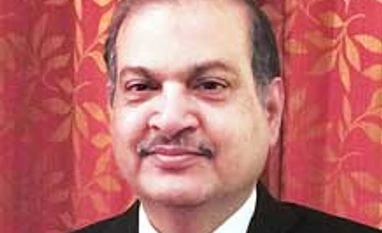Was it a conscious effort by the government to make the Foreign Trade Policy (FTP) in line with the country’s commitments at the World Trade Organization (WTO) or were you under pressure by the developed countries? Either way, this stance seemed to have not gone sown well with exporters.
There is no question of pressure but of honouring your commitments. Once you are party to an agreement, it is expected of a responsible nation to come up with policies in tune with these. We cannot say one thing and sign on to something else. Its has to be cohesive. There is now a greater realisation that if we have to really boost exports, we need to improve internally. That’s why a lot of effort has gone into simplifying of processes. The external environment is out of our control.
One aspect that has come out very clearly in the FTP is that the days when exporters can expect sops to become competitive are gone. Is this, again, due to commitments to global norms or to fiscal constraints?
Both. Incentives cannot go on forever. We have to gradually take these away. We can justify and continue with those we can afford but beyond a point, we have to think of our own competitiveness. We can prop things up artificially but cannot make them run a marathon.
The FTP has come after almost a year. Since there was no mention on an interest subvention for exporters in the (Union) Budget, it was highly anticipated that the announcement would be done with the FTP release. Now, it seems, you will take a couple of more months to clearly come out with it.
That is a budgetary announcement. So, the legislative decision is already there. We will come up with the scheme; right now, we are in the process of finalising a proposal. Once that is done, it will finally go to the CCEA (Cabinet Committee on Economic Affairs). It will take at least two months.
The FTP statement categorically mentions that the thrust will be on sectors performing well, as well as labour-intensive ones. Will those sectors get the three per cent interest subvention boost?
That analysis is going on. The guidelines of the scheme have to be finalised. This is anyway not linked with the FTP. It will come after necessary approvals are taken.
Applicable retrospectively or prospectively?
It is generally done prospectively. But we have not yet taken a call on it.
Will the Services Export from India Scheme (SEIS) be given to Special Economic Zone units? The policy says SEZ units are ineligible.
SEZ units will get SEIS benefits. We will soon issue a corrigendum.
The additional revenue outgo the government will have to bear for doing so?
We have not calculated it. Ultimately, we were able to convince the finance ministry. There will be some outgo but then, we have taken into account all physical exports made from the country as a whole.
Was it not an indirect way to pacify the SEZ units, in lieu of imposition of MAT (Minimum Alternate Tax), DDT (Dividend Distribution Tax)?
Government has taken an overall view. It is part of the bigger picture.
Also, it will not be given to information technology or IT-enabled services' SEZs?
IT-ITeS is, in any case, out of the purview of SEIS. The rule is the same, whether for DTA (Domestic Tariff Area) or SEZs.
The duty scrips you are giving under MEIS and SEIS have basically become tradable.
Earlier, exporters complained that by issuing duty scrips which were non-transferable, the government was incentivising imports. Now, we are also incentivising exports, as we have made it freely tradable. Now, our scrips are as good as cash.
How will this check revenue loss?
Earlier, middlemen were making money; now, they are eradicated. If an exporter who earns it has no excise duty to pay, no service tax to pay, he can simply encash it from any other exporter. There is no more restriction to it. By this, we have effectively checked the root cause of corruption, by eliminating the middlemen.
Now that you have substantially reduced the export obligation under the EPCG (Export Promotion Capital Goods) scheme from 90 per cent to 75 per cent, do you feel there will now be less of defaulters?
Under the EPCG scheme, the government is allowing import for local procurement of certain items needed for making export products, some capital goods that are required to manufacture certain exports. Now that we have to promote exports, we are looking at making import of those items easier, that help in producing such exports. So, this will help in both manufacturing and export.
)